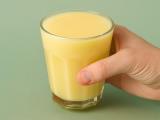Testosterone is a crucial hormone responsible not only for a deep voice and beard but also for vitality, muscle mass, sex drive, bone health, and even mental well-being. Interestingly, today more and more men, even younger ones, are facing testosterone deficiency. In the USA, half a million men are affected every year. Why? One of the reasons might surprise you: a low-fat diet.
Can diet really lower testosterone levels?
Our grandmothers used to say that a man without fat is not going anywhere. What they knew by instinct and experience is now confirmed by numbers. A recent American study, conducted with the help of an extensive National Health and Nutrition Examination Survey, showed just that. Men who consume insufficient fats have lower testosterone levels. The study included 3100 men aged between 18 and 80 years, which is an exceptionally large sample for studies. Participants kept a food diary, and their serum testosterone levels were measured, meaning the testosterone levels in the blood.
What does this mean in numbers?
The average testosterone level in men in this study was 435.5 ng/dl (nanograms per deciliter). However, those on a low-fat diet had an average level of only 411 ng/dl, which is quite low. The lower limit in men over 40 years old is 300 ng/dl; below these values, doctors diagnose testosterone deficiency. Almost 27% of all men in the study had testosterone levels below this critical threshold.
What does a low-fat diet mean?
A low-fat diet is a meal plan where saturated fats (found in meat, dairy products, butter, etc.) are consumed minimally, and often even healthier fats like omega-3 found in nuts, fish, and flaxseed oil are reduced. People often adopt this type of diet for weight loss. It is true that fewer fats mean fewer calories and faster burning of fat reserves, but this dietary approach also has its cost.
Fats are not the enemy but an ally
Traditional healers often recommended eggs, homemade butter, and fatty fish as tonics for men. These products are rich in healthy fats that the body needs to produce hormones. Testosterone is produced from cholesterol, which the body obtains precisely from fats. Therefore, by excluding fats from the diet in the long run, we deprive the body of the building material for hormone production.... (the translation continues) ...
Datum: 19. JUL 25 - GOOD TO KNOW
Low-calorie diet linked to decreased testosterone levels
When we talk about men's health, we often think of strength, endurance, fertility, and that invisible energy that drives us. Behind all of these aspects typically stands one hormone: testosterone.
(FW)
 Would you like to be informed about news on the website?
Would you like to be informed about news on the website?
Just enter your e-mail
low-calorie diet testosterone levels
testosterone deficiency diet
low-fat diet and testosterone
testosterone levels and fat intake
diet impact on testosterone
|
Copyright (c) Foodwhisper.com March 2018 |
π | Contact: info@foodwhisper.com |
About us | Facebook |  |









